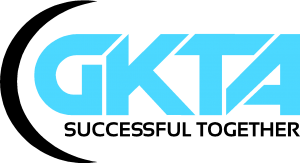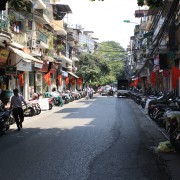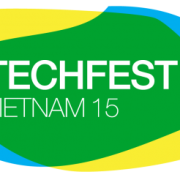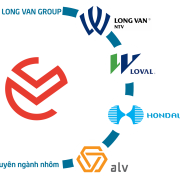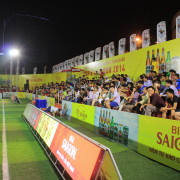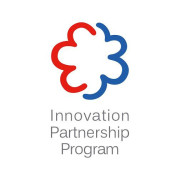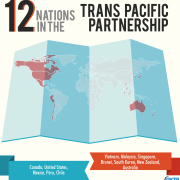First Impressions of Vietnam
Trying to explain Hanoi, and Vietnam in general to someone who has never been here can be quite challenging. For many expats in Southeast Asia, the region and its cultures can be difficult to understand and navigate let alone effectively explain to family and friends at home. And research, while helpful to understand settings, is not a substitute for direct experience.
This week we have a guest contributor who is with us here in Hanoi. Zdravko Tumbovski is an international businessman who has done business in Turkey, Bulgaria, his native Macedonia, and other countries. He arrived in Hanoi for the first time on Tuesday, November 18 in order to take a firsthand look at the Vietnamese market and to gauge its potential for his interest in trading with Vietnam and in Southeast Asia.
His professional experience includes an internship at an insurance company in Macedonia; a Business Analyst position at a family owned company, Info Group Ltd, which made investments in the Macedonian Stock Exchange and the Macedonian Real Estate market. Currently, Mr. Tumbovski is the founder and director of Z&Z Capital Ltd based in Bulgaria, which specializes in transport and logistics services in the European Union (EU).
Additionally, in conjunction with partners in Turkey, he is involved in import-export transactions, mainly in cooking oil, but they are also expanding to other commodities for the Turkish bazaar. His primary role is to find a suitable supplier and to negotiate the payment methods and transportation of the goods.
Zdravko shares his first impressions of Vietnam below:
After constantly moving around between the US, Europe, and the Middle East in the last seven years, I spent a considerable amount of time in Los Angeles this year. About a month ago, I reconnected with director of GKTA Group, whom I have known for several years.
GKTA Group introduced me to some of the many challenges, opportunities, and conditions faced in Vietnam. I felt attracted to learning more about this dynamic market and it didn’t take long for me to decide to come here and check out Vietnam for myself.
Even though I am still in the first week of my arrival, I must admit that I am having a very smooth transition to this country so far. I was already familiar with Asian cultures due to my friendship with Asians in my network that I have known for a long period of time, and also because GKTA Group put a lot of effort to set up at least one meeting per day with a local person where I can get his/her answers to some of my questions about his/her country’s future, his/her point of view toward foreigners, and the changes that s/he has seen the past five years in Hanoi, especially.
Hanoians and Hanoi
Vietnamese people in the capital of Hanoi are generally polite and quiet. It usually requires some time until they start to feel comfortable sharing their views, and begin to realize the goal of my questions because I see that they are not very used to foreigners who are interested in their culture, and who try to understand their values.
Vietnamese people seem to be the loudest on their motorbikes. They are honking at every cross street, and from my findings they rarely show anger with words, but only with menacing stares at the perceived wrong-doer. The amount of motorbikes and the traffic frequency for me was something unseen before; in short, outrageous.
Hanoi is a city with a long history, and it is shown on every corner. Hanoi has the street-selling spirit and it is still done traditionally and mostly inexpensively for locals. However, there is luxury consumption visibility in the younger generations and newly rich populations. For me, this is probably more visible because I was raised in a former communist country, Macedonia (Former Yugoslavia).
The Wi-Fi coverage and the use of internet are quite impressive compared to the expectation of technology in a developing country. The “drinking-coffee” habit is at large range, and the number of cafes is seemingly endless but a favorite of Vietnamese people. One new thing for me is using condensed milk (“sua dac”) in almost every cup of coffee—and I find it tasty—even if it is uncommon for me as a European.
Luckily, I am fan of Asian cuisine, and have been eating it frequently. Compared to other cuisines and the tastes of some westerners, you may remain hungry here if you are very picky with the food. The traditional street foods, or the local dishes in the very basic and not-so-modern restaurants can be tasty for people who are food enthusiasts and open to new flavors; on the other hand, it can be off-putting (even though I aim to be cautious with my language here), because I certainly know many people who would not be able to eat the local food here, and who would not be willing to be seated and served in the Hanoian or Vietnamese way of small tables and children chairs. So far, I enjoy it.
Work Ethic and Exposure
My personal view is that most of people here work hard and long hours. The basic example for that is the staff at the hotel where I stay. They are here every single day of the week, for over twelve hours per day. They are very friendly and very helpful even if there is occasional miscommunication.
When talking to waiters or other people in cafes and on the streets, I have come to realize that many of them have not had a chance to travel a lot. Actually, many have never been outside of Vietnam. The reason for that is first, money and second, time since, as mentioned before, they have to work almost every day, year-round.
There is a sense of trust that permeates through the people here. I had a very unique experience that occurred to me at the border upon arriving at the airport: I had arranged for visa upon arrival and at the bureau the visa was issued and stamped more quickly than what I had estimated, but I had no cash on me to pay. The customs officer asked me if I had any currency equal to the amount of $95 (the price of the visa), but I had none. The ATM was outside the immediate area, after the passport control, so I thought that I couldn’t consider the option to withdraw some money. As a matter of fact, the officer walked me through the immigration border without any checking and without any concern, just to withdraw the necessary money for the visa, and then led me back to her desk in order to pay. That was surprising. Actually, the border control experience in general was more liberal than in many other countries.
If I am allowed a chance or could offer some suggestions to Vietnamese who want to be successful with westerners, it would be:
- Learn more English, the number of tourists is increasing and you need it
- Strive to be more comfortable with foreigners
- Be more creative for international businesses; this land is rich
- Act more responsible to the duties and respond to requirements efficiently and faster
Business and Understanding Vietnam Now and in The Future
I haven’t experienced any business deals in Vietnam yet, but I am most worried about the changing industry regulations, the unpredictable law amendments, unfair competition, and the guarantee of quality standards.
My advice to the expats that want to do business in Vietnam is to spend as much time as possible here, but with local people. It is essential to understand the habits of the Vietnamese before starting any sort of business, in order to prevent an organizational mismatch and communication misunderstandings. It is complex and different here indeed.
I can already see that the necessary attributes required to succeed in Vietnam are patience and simple guidelines.
What I would like to learn about Vietnam or the Vietnamese is: until what extent have the ancestors shaped today’s population, and how much is the young generation willing to keep and practice the old traditions? I hope that finding this balance will help me to predict and understand their place in the world for the next decade.
This next decade will be crucial for Vietnam as the country transitions to increased trade with more global partners, the middle class continues to grow, and more foreign investment pours into the economy. Vietnam has many natural resources, a lot of talented people, and a willingness to exceed economic indicators but it will not be without some development friction, conflict between traditional and modern Vietnam, and addressing some major investor concerns. However, the long-term benefits will be far greater than what the shortcut rewards of today will provide. After all, as Jim Rohn says, “You cannot change your destination overnight, but you can change your direction overnight.”
Thanks to Zdravko Tumbovski who contributed to this week’s post.
